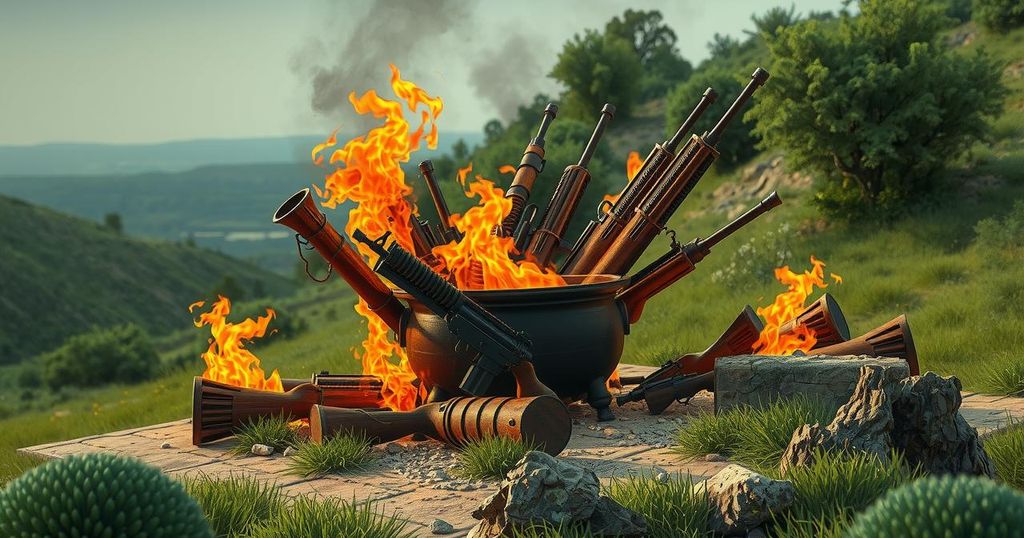Efforts Underway to Resolve Turkey’s Kurdish Conflict After 40 Years
- A group of 30 PKK fighters disarmed in northern Iraq, marking a significant step toward peace.
- Abdullah Ocalan’s call for disarmament comes as Turkish officials express cautious optimism.
- Bahceli’s shift signals a potential avenue for Kurdish rights within the political framework.
Efforts to End the Conflict Show Promise Yet Challenges Remain
Understanding the Kurdish Conflict in Turkey The long-standing Kurdish conflict in Turkey is now seeing a flicker of hope, with a group of 30 Kurdish fighters ceremoniously laying down their weapons in northern Iraq. This event, which unfolded on July 11, 2025, marks what may well be the first significant move towards addressing a conflict that has persisted for over 40 years. The Kurdistan Workers’ Party, known as the PKK, made this gesture under the directive of their imprisoned leader, Abdullah Ocalan, who has been advocating for disarmament as part of a broader peace initiative with the Turkish government.
The Political Landscape is Changing, But Skepticism Lingers
The Role of Key Figures and Political Dynamics The political landscape surrounding the Kurdish conflict is complex, characterized by a myriad of stakeholders and interests. Devlet Bahceli, an influential ultranationalist politician, has played a pivotal role by initiating the current peace process. His shift in position is noteworthy; historically, he has been a strict opponent of Kurdish rights. This change was catalyzed by Ocalan’s call for disarmament, which has sparked a potential new round of discussions about the future of Kurdish rights in Turkey, particularly concerning the PKK’s fighters and their political integration. However, many remain skeptical about what benefits the Kurdish groups might receive in exchange for their disarmament, particularly as shadows of violence linger with recent PKK attacks.
Negotiations Hinge on Regional Dynamics and Historical Precedents
Previous Attempts at Peace and Future Prospects Historically, various peace attempts, including negotiations held in Norway and earlier initiatives from 2013 to 2015, have fizzled without results. The previous efforts aimed at ceasing hostilities and fostering dialogue but ultimately collapsed due to a surge in violence, notably the Islamic State’s attack on pro-Kurdish activists in 2015. Currently, the renewed discussions come amidst dramatic geopolitical shifts, including the ongoing crisis in Syria and changing alliances. Hamish Kinnear, a prominent analyst on Middle Eastern affairs, has suggested that the PKK’s recent inclination towards dialogue reflects their dwindling military power amid Turkey’s robust military strategies. These developments hint at an intricate balancing act where both the Turkish state and Kurdish groups are seeking advantageous positions amid a transforming regional landscape.
The latest efforts to end the Kurdish conflict in Turkey represent a potentially significant turning point, driven by the symbolic disarmament of PKK fighters and influenced by Ocalan’s calls for peace. Despite this, numerous challenges loom, including skepticism regarding political concessions and the threat of persistent violence from splinter groups. The political landscape indicates a complex path forward, but there remains cautious optimism for a resolution that could reshape the Kurdish experience in Turkey.




Post Comment